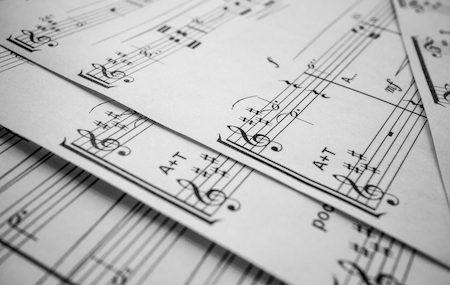Do you have a recital coming up soon? Many people aren’t as afraid of playing in front of people as they are of forgetting the music.
Memorizing piano music isn’t something that comes easily to everyone. It can leave you feeling frustrated and overwhelmed. What if you sit down at the piano and forget everything? What if you simply can’t remember the song?
Memorization techniques aren’t something you’re born with. Instead, memorization is a trained technique that anyone can learn.
What kind of learner are you?
Not everyone learns in the same manner.
Visual learners learn best through sight. They like seeing and observing through pictures or demonstrations.
Auditory learners learn best by listening. They want to hear what the music sounds like before they play it.
Reading learners prefer the written word. They love to take and review their notes.
Kinesthetic learners learn best through experience. They love to dig in and experience it all at a touch.
One of these methods probably jumps out at you when looking at these four methods. Once you’re aware of how you learn, you can put your energy towards finding tools to help you use that method more effectively.
Practice memorization using these three methods
Memorization requires three steps:
First, record the new memory in your mind using your preferred method. You might read through the music without playing, listen to someone else play it, or play it yourself.
Next, work on retention. This is where practice comes into play. It requires you to play it enough to move it from short-term to long-term memory so you can recall it later.
Finally, it requires using recall to ensure you can bring the information back out and put it into practice.
Repetition
Recital dates are spaced months apart to give you time to work on memorization. When you work on a piece repeatedly for days on end, it stays in the front of your mind. Ensuring you can recall it requires moving it to long-term memory. You can do this through spatial repetition.
This requires you to work on a piece, then set it aside and move on to something else. After a few days away, pick up the piece again and start working with it. Do this in your preferred learning style.
You can also review your music at different times of the day. If you always play at 3pm, change it up and practice in the morning or before you go to bed. Adding a little newness to your routine can change how you absorb the music process.
Memorizing piano music doesn’t have to be a complex process. The key is giving yourself the time to learn the piece, and recognize your best approach.


